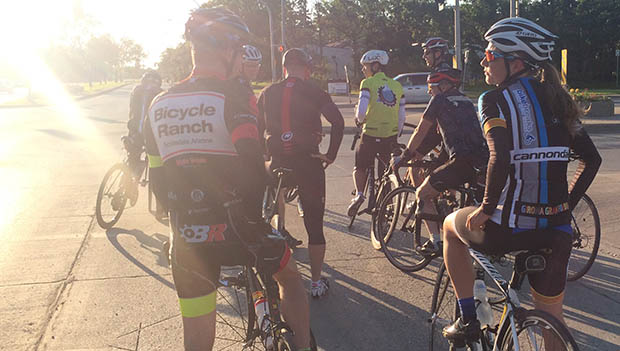
They say there are two kinds of cyclists: those who have crashed, and those who will crash.
While these are ominous words, most of our bike crashes tend to be of the benign and embarrassing variety. Maybe it was an ill-fated gravel turn from when you were 12 and trying to impress your friends; or one of those all-too-common stoplight crashes, when you forgot to unclip and toppled over like an intoxicated baby turtle (and only your pride took a serious beating).
But sometimes a crash comes along that is significant. While it may not be bad enough to kill you, it’s bad enough to almost make you reexamine your choice in hobbies—maybe even take up golf. Almost.
My front wheel was shredded by someone’s quick release. My right arm was shattered by the pavement.
Seven months ago, on a beautiful August morning, I was flying down the highway at 30 miles an hour, somewhere mid-pack in a group of 20 other cyclists. It was my regular morning group ride, one I’ve done hundreds of times before without incident. On this particular morning, the rider in front of me hit a pothole in the road and pandemonium ensued. There were brakes and bodies and pavement, and that horrible clattering noise we all know and hate.
My front wheel was shredded by someone’s quick release. My right arm was shattered by the pavement.
I suffered a severe open fracture of the olecranon—or elbow, for those of us who ignored 11th grade biology class—and after two excruciating ambulance trips over roads that seemed to rival post-war Berlin, I had surgery to insert a metal plate about the size of a large, hooked butter knife into my arm, secured with what looked like five drywall screws. I woke up groggy, filthy and casted from shoulder to fingertips. After three days in the hospital, I was loaded up with enough painkillers to stun Keith Richards and sent home.
That was the easy part.
Recovery was the most mentally and physically demanding full time job you can imagine, accompanied by a pity party of astronomical proportions.
The next seven months were an endless battle of trying to get back to normal. With my elbow capable of only a minuscule range of motion, everything I attempted to do ranged from moderately hard to downright impossible. Every week consisted of a tedious regiment of physio appointments and surgery follow-ups, interspersed with the now seemingly impossible task of my own hygiene and grooming. Recovery was the most mentally and physically demanding full time job you can imagine, accompanied by a pity party of astronomical proportions.
Of course, every injury is unique, and everyone reacts differently to catastrophe. That said, I am going to share some hard-won wisdom from my own journey back to awesome.


